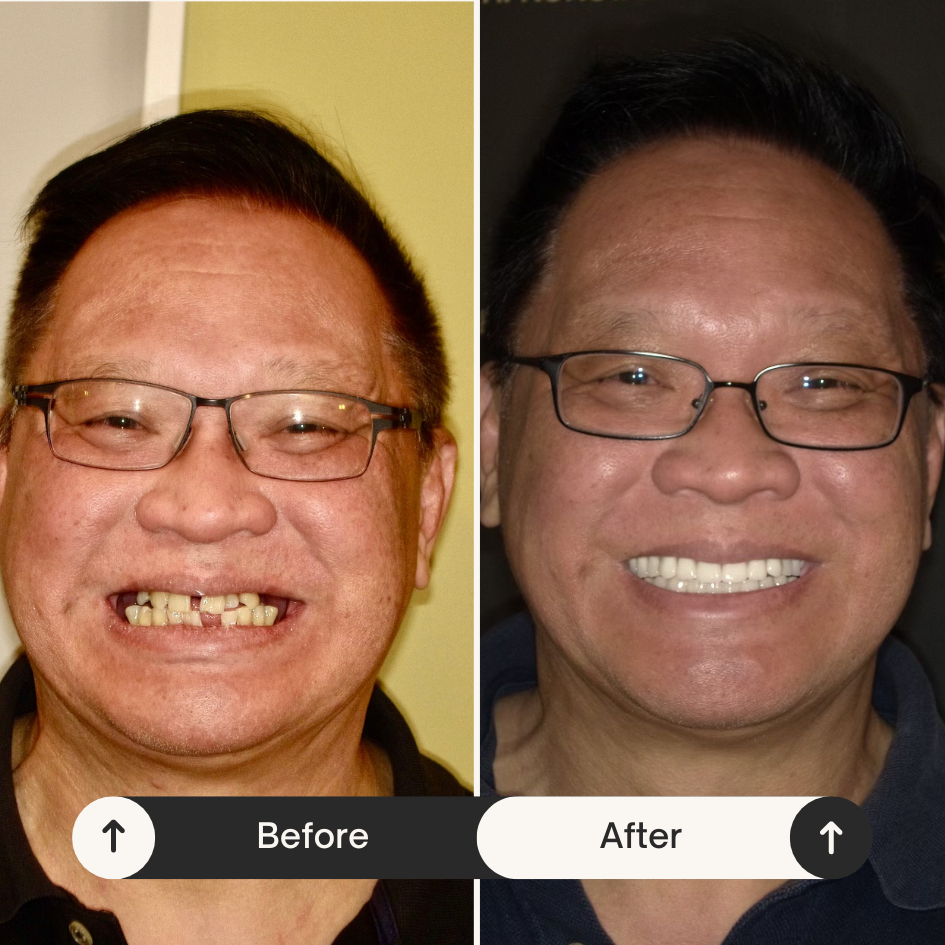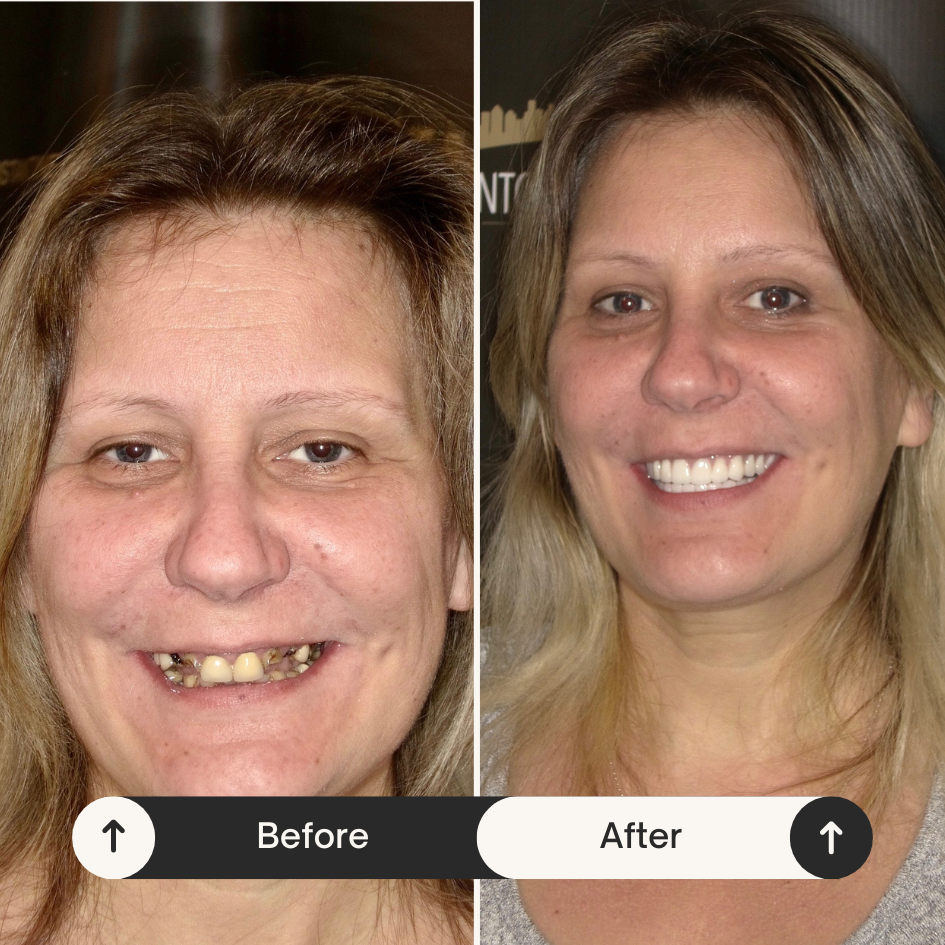Dental implants have become the gold standard for replacing missing teeth, offering a permanent, natural-looking solution that improves function and aesthetics. But as you explore this advanced treatment option, a crucial question arises: are dental implants covered by insurance?
Unfortunately, the answer isn't a simple yes or no. Dental insurance can be complex, and implant coverage varies significantly depending on several factors. This comprehensive guide will delve into the intricacies of dental insurance, explain how it applies to implants, and explore alternative financing options.
Before delving into whether dental implants are covered by insurance, it's essential to grasp the basics of dental insurance. Most plans categorize dental treatments into three tiers:
Dental implants are often classified under "major restorative care." However, many insurance companies categorize them as cosmetic, especially when replacing teeth lost due to preventable causes like poor oral hygiene or injury.
This categorization can significantly limit coverage, leaving patients to shoulder a substantial portion of the cost.
Several factors come into play when determining whether your insurance will cover dental implants:
Deciphering your insurance coverage for dental implants can feel daunting. Here's a step-by-step approach to gain clarity and explore your options:

If your insurance coverage for dental implants is limited or nonexistent, don't despair. Several alternative dental implant financing options can help make implants more affordable:
Dental implants offer a remarkable solution for replacing missing teeth, restoring functionality, and enhancing your smile. While insurance coverage for implants can be complex and often limited, various financing options are available. By understanding your insurance benefits, exploring alternatives, and openly communicating with your dentist, you can achieve a healthy, confident smile that lasts a lifetime.

Don't hesitate to schedule a consultation with our experienced dental team to discuss your implant needs and explore all your financing options. We're here to guide you through every step of the process and help you achieve the smile of your dreams!
Losing teeth due to gum disease can be a devastating experience, affecting your confidence, oral function, and overall well-being. But even if you've faced the challenges of gum disease, hope for a restored smile remains. Dental implants offer a robust and lasting solution for replacing teeth lost through gum disease, providing a path to regain oral health and confidence.
Gum disease, or periodontal disease, is a chronic bacterial infection that affects the gums and supporting structures of your teeth. If left untreated, it can lead to:
Dental implants provide a unique advantage in cases of tooth loss due to gum disease. Unlike traditional bridges, which rely on adjacent teeth for support, implants function independently. They are surgically implanted into the jawbone, acting as artificial tooth roots. This offers several key benefits:
Before dental implants can be considered, any active gum disease must be effectively treated. This typically involves:
To treat the underlying issue, you may also be a candidate for the LANAP procedure.
Gum disease often leads to bone loss, which can impact the success of dental implants. Your dentist will carefully evaluate your bone density and volume through X-rays and possibly a 3D scan (CBCT).
If significant bone loss has occurred, bone grafting procedures might be necessary before implants can be placed. These grafts provide the foundation needed for implant stability and integration.
Once your dental implants are placed, maintaining meticulous oral hygiene is crucial for long-term success. Your dentist will provide detailed instructions on proper brushing and flossing techniques to keep your implants clean and healthy. Regular dental checkups and professional cleanings are essential to monitor oral health and prevent potential complications.
Choosing a skilled and experienced dentist is paramount when replacing teeth lost through gum disease. Look for a dental professional who:
Losing teeth due to gum disease can feel like a setback, but dental implants offer a path to reclaim your smile and oral health.
By addressing gum disease effectively and partnering with a skilled dentist, you can experience the transformative benefits of dental implants, enjoying a restored smile that is both functional and aesthetically pleasing.
Book a consultation with Dr. Trichas in Basking Ridge, NJ Today!
Losing a tooth can be distressing, impacting your confidence and ability to enjoy your favorite foods. Fortunately, dental implants offer a permanent, natural-looking solution to restore your smile. But the prospect of a lengthy treatment process might give you pause. That's where the question arises: Can dental implants be done in one day?
The answer, in many cases, is yes! Advancements in dental implant technology have paved the way for immediate load implants.
This revolutionary approach allows placing both the implant and a temporary crown in a single appointment. While unsuitable for every patient, this streamlined process offers numerous benefits, making it an appealing option for those seeking a faster path to a restored smile.
Before delving into the world of one-day implants, let's understand the traditional implant process, which typically involves multiple stages spread over several months:
Immediate load implants, or same-day implants or teeth-in-a-Day, challenge the conventional timeline, allowing for implant placement and temporary crown attachment in a single appointment. This accelerated process hinges on several critical factors:
Choosing one-day implants offers several advantages:
While immediate load implants offer a compelling solution, they are unsuitable for every patient. Several factors influence candidacy:
Determining whether you're a suitable candidate for one-day implants requires a thorough evaluation by an experienced dentist specializing in implant dentistry. During your consultation, your dentist will assess your oral health, bone structure, medical history, and lifestyle habits to determine the most appropriate approach for your needs.
Selecting a highly skilled and experienced dentist specializing in implant placement is paramount for a successful outcome, particularly for immediate-load implants. Look for a dental professional with:
Immediate load implants offer a revolutionary approach to tooth replacement, providing a faster path to a restored smile and improved oral function. While not suitable for everyone, advancements in dental implant technology and the expertise of skilled dentists have made one-day implants a viable option for many patients seeking a more streamlined treatment experience.
If you're considering dental implants, consult a qualified dentist specializing in implant dentistry to determine if one-day implants are the right solution for your needs.
Dental anxiety can be a significant barrier to receiving essential dental care. This post is dedicated to helping patients overcome their fears through effective strategies and understanding the support available at dental offices, particularly at Dr. Trichas’ practice.
After working with thousands of patients, we've developed a fundamental understanding of the underlying causes behind dental anxiety and fear of procedures.
Fear of dental visits often stems from negative past experiences, sensitivity to a dental office's unique sounds and smells, fear of pain, or feelings of vulnerability, and lack of control while in the dental chair. Recognizing your specific fear is the first step in overcoming it.
Anxiety triggers in a dental setting can vary widely. The whir of a drill, the anticipation of a needle, or the feeling of someone working in your mouth can all be anxiety-inducing. Acknowledging these triggers allows for better preparation and coping strategies.
Sometimes, it just takes the adoption of simple relaxation techniques for a patient to get over their dental anxiety.
Deep, controlled breathing can have an immediate calming effect. Practice inhaling slowly and deeply through your nose, holding for a count of five, then exhaling slowly through your mouth.
Begin at your feet and work your way up, tensing each muscle group for a few seconds, then releasing. This technique can be particularly effective in the waiting room or dental chair, helping to reduce overall tension.
Visualize a serene and happy place. This mental diversion can be a powerful tool in shifting focus away from dental procedures.
This trick is as old as time itself, and guess what? In combination with other techniques, it helps patients!
Bringing headphones to listen to calming music or an engaging podcast can help you stay relaxed and distracted from the sounds of the dental office.

Open communication between the patient and the dental team is foundational in managing dental anxiety. It's important for patients to feel heard and understood. Dr. Trichas and his team prioritize building a rapport with patients, encouraging them to discuss their fears and concerns openly.
Every patient's anxiety is unique. Some may fear pain, while others might have had traumatic past dental experiences. Understanding these individual concerns allows the dental team to customize their approach. For instance, if a patient is anxious about pain, Dr. Trichas can explain pain management and anesthesia options.
Fear often stems from the unknown. By thoroughly explaining procedures, answering questions, and demystifying common dental treatments, the dental team can help alleviate fears. This might include walking through the steps of a procedure, discussing what each instrument does, or even providing a tour of the office to familiarize patients with the environment.
It's crucial for patients to feel in control of their dental experience. This could involve establishing a signal to pause a procedure if the patient feels uncomfortable or allowing the patient to take breaks as needed. Dr. Trichas’ team encourages this communication, ensuring patients know they have control over their treatment.
Not all patients are comfortable verbalizing their anxiety. The team at Dr. Trichas’ practice is trained to recognize non-verbal signs of discomfort or fear, such as tensing up or avoiding eye contact, and will adjust their approach accordingly.
The commitment to open communication extends beyond the dental appointment. Regular check-ins and follow-up calls can help build a lasting relationship in which patients feel supported and are more likely to express concerns or anxieties they might have in the future.
Incorporating open communication into dental practice not only alleviates anxiety at the moment but also fosters a trusting, long-term relationship between the patient and the dental team. This approach is a cornerstone of the patient-centered care that Dr. Trichas and his team are committed to providing.
Comfortable Environment
Modern dental practices, including Dr. Trichas’, often feature a relaxing environment, with soothing decor, comfortable seating, and a warm, welcoming atmosphere.
Understanding that dental anxiety can be a significant hurdle, Dr. Trichas’ office offers specialized sedation dentistry. This section delves into how sedation options can transform your dental experience into a calm and stress-free one.
Understanding the needs of patients with dental anxiety, Dr. Trichas’ office includes a sedation specialist on the team. This allows for a variety of sedation options tailored to the individual's level of anxiety.
Types of Sedation Available
Options range from mild sedatives, which relax but keep you awake, to deeper forms like IV sedation or general anesthesia, where you're completely unaware of the procedure.
Safe and Controlled Environment
Sedation is administered by trained professionals, ensuring a safe and controlled experience. Patients often find that sedation dentistry can transform their perception of dental visits.
‘Tell-Show-Do’ Technique
This technique involves explaining procedures (Tell), demonstrating them in a non-threatening way (Show), and then carrying out the procedure (Do). It’s especially effective for alleviating anxiety.
Overcoming dental anxiety is a journey, but it's possible with the proper techniques and a supportive dental team. Dr. Trichas and his team are committed to providing patients with a comfortable, anxiety-free experience.
If dental anxiety has kept you from maintaining your oral health, we encourage you to contact Dr. Trichas’ office. Our team, including our sedation specialist, is here to make your visit as comfortable and stress-free as possible. Contact us to discuss your needs and how we can help.
Book a Free Consultation Today!
Good nutrition is foundational to overall health, including the health of your teeth and gums. This is particularly important for individuals with missing teeth, dental implants, dentures, or those undergoing dental restoration procedures. This blog post delves into the connection between diet and oral health, offering tailored nutritional advice.
The health of your teeth and gums is deeply intertwined with your dietary choices. Let's break down how nutrients affect your oral health and the implications for dental restorations.
Healthy teeth and gums rely on certain essential nutrients. We'll examine why minerals like calcium, phosphorus, and vitamins such as D, C, and A are crucial for oral health.
Diet plays a significant role in the longevity and success of dental restorations. Here, we'll discuss the importance of diet in maintaining dental implants and the challenges faced with various dental procedures.
Certain vital foods that are beneficial for oral health are included in a diet. Let’s explore how these foods contribute to healthy teeth and gums.
Not all foods are friends of your teeth. Some can be pretty harmful. Here, we'll identify the foods that can negatively impact oral health and should be consumed in moderation.

After getting dental implants, it's essential to modify your diet accordingly. We'll guide you through the best dietary practices during the healing process and beyond.
Navigating your diet with dentures requires some adjustments. Here, we'll cover what foods to avoid and how to chew to effectively maintain your dentures' integrity.
Adopting a diet that supports oral health is essential, especially when dealing with dental restorations. You can maintain a healthy and radiant smile by understanding how different foods impact your teeth and gums and making informed dietary choices.
For more personalized advice on diet and dental health, or if you have specific concerns about your oral health, please get in touch with us for a consultation. We’re here to guide you on your journey to optimal dental well-being.
Tooth loss in adults is more common than many realize, yet it's seldom discussed openly. Beyond the physical implications, losing a tooth can significantly impact one's emotional well-being. This article delves into this often-overlooked aspect, offering empathy, support, and guidance for those navigating this challenging journey.
Like any loss, losing a tooth can trigger a grieving process. This may include shock and denial initially, followed by feelings of anger and bargaining. Depression may set in, as the loss impacts one's self-image and daily life, before finally reaching acceptance. Recognizing these stages as a natural part of the healing process is crucial.
The impact of losing one's smile can't be understated, and through our patients, we've gained in-depth insights into the emotional turmoil involved with missing teeth.
Hearing from others who've been through similar experiences can be incredibly comforting. We've gathered stories from patients who've faced tooth loss, detailing their emotional challenges and the paths they took to overcome them. These stories highlight the struggle, triumphs, and positive changes post-recovery.
Connecting with others who understand what you're going through can be therapeutic. Friends and family can provide a listening ear and moral support. Additionally, joining support groups, either in-person or online, can offer a sense of community and shared experience.
In cases where emotional distress is significant, seeking help from a therapist or counselor can be beneficial. They can provide strategies to manage stress, anxiety, and depression related to tooth loss.
Practicing mindfulness, focusing on the present moment, and maintaining a positive outlook can significantly impact emotional recovery. Simple activities like journaling, meditation, or engaging in hobbies can bring a sense of calm and control.
Several dental solutions are available today to restore both function and aesthetics, including implants, dentures, and bridges. Consulting with a dental professional can open the door to these possibilities, tailored to your needs and circumstances.
Acknowledging and addressing both the physical and emotional aspects of tooth loss is essential. By taking proactive steps toward dental and emotional recovery, you can regain your smile, confidence, and quality of life.
We invite you to share your experiences, ask questions, or schedule a consultation for further guidance. Remember, you're not alone on this journey; there's a path to recovery and renewal.
Contact us today to begin your smile journey.